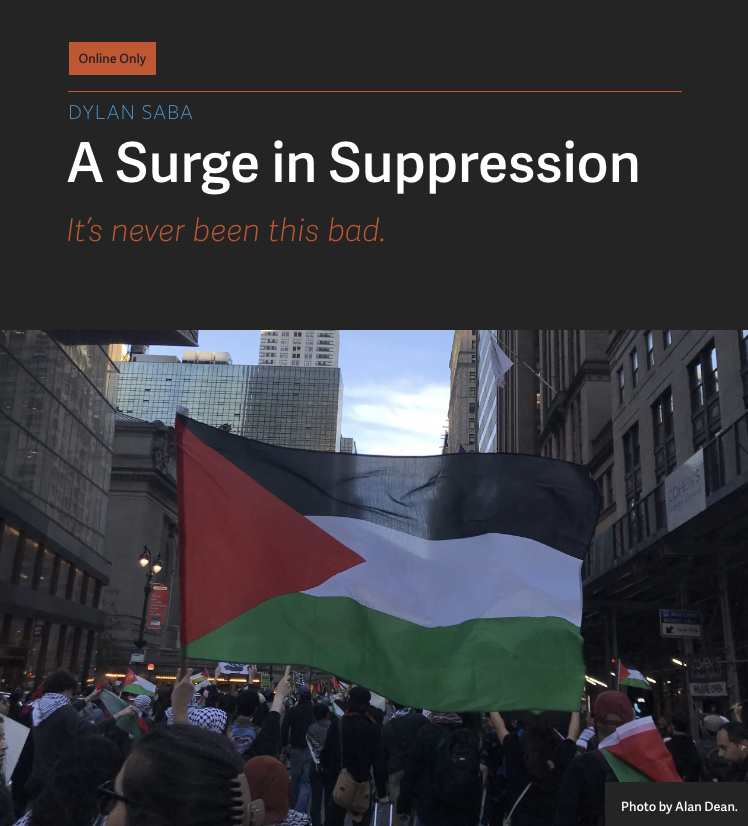Dylan Saba in n+1: A Surge in Suppression
/Palestine Legal staff attorney Dylan Saba published an important Op-Ed in n+1 on the wave of retaliation and censorship of political expression in solidarity with Palestinians that we’ve witnessed over the past month.
Ironically, Dylan notes, the piece was originally commissioned by an editor at The Guardian and subsequently killed minutes before posting. Instead, it was courageously published by both n+1 and In These Times.
At Palestine Legal—the nonprofit organization where I work, which provides legal support to the Palestine solidarity movement—we’ve received hundreds of requests for assistance over the past two weeks, an exponential surge in our caseload. Many of those who have come to us are individuals facing negative consequences in their workplace for social media posts. Professors are being questioned, having their classes canceled, and getting locked out of email over statements supporting Palestinian rights, including in private communications.
In the vast majority of instances, the individuals targeted are Palestinian, Arab, Muslim, or Black, and many have faced racist and dehumanizing harassment as a result of the smears. Since 2014, we’ve handled thousands of such incidents—suppression of speech supporting Palestinian rights is nothing new—but it’s never been this bad.
At a time when the United States is backing Israel’s wanton destruction of the besieged Gaza Strip, in what some scholars have called a “textbook case of genocide,” principled dissent is of paramount importance. As 540+ members of the legal community have urged in a statement, it is incumbent upon our elected officials, institutional decision-makers and all who care about preserving democracy to protect dissent on a matter of such domestic and international significance, and to prevent the racist targeting of communities based on their ethnic, racial, and religious identities and political views.
While the backlash we have seen is different in nature and degree to anything we have witnessed in recent years, activists—particularly of the youngest generations—also seem more resilient than ever and more willing to speak against injustice in Palestine despite the personal risks. Some, such as Ryna Workman, have used the spotlight thrust on them to continue to support Palestinian rights and oppose genocide.


